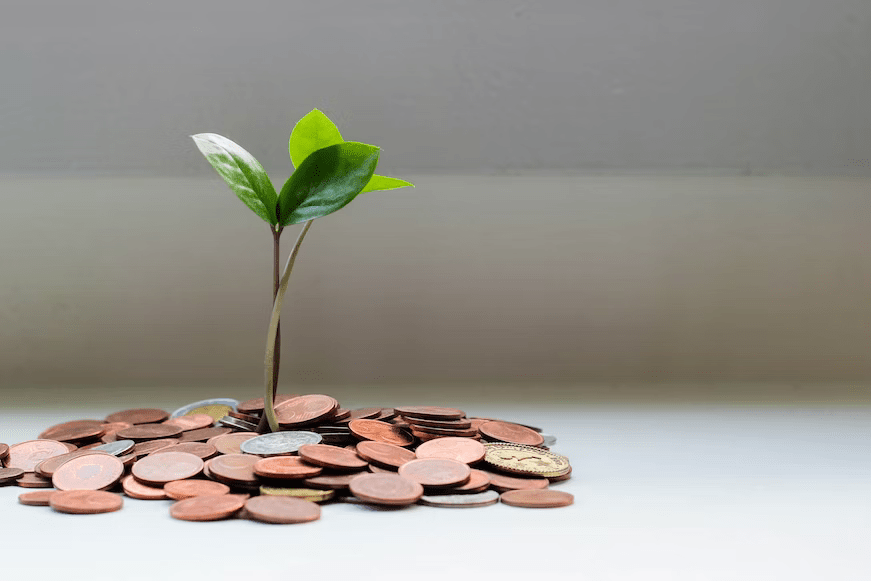9 Financial Goals to Achieve in Your 30s
Welcome to your 30s, a decade that marks a crucial period for your financial growth and stability. As you embark on this journey, it's important to remember that financial goals are not set in stone but rather aspirations to work towards. Each individual has their own pace and circumstances, and what matters most is the progress you make along the way. With that in mind, let's explore nine financial goals that can help you lay a solid foundation for a secure future.
9 Financial Goals to Achieve in Your 30s
- Establish good credit
In your 30s, building a strong credit history becomes necessary. Establishing good credit opens doors to favorable interest rates on loans and credit cards. To achieve this goal, start by paying your bills on time and in full. Consider opening a credit card with a low credit limit, and use it responsibly. Avoid taking on excessive debt and monitor your credit score regularly. By building a solid credit history now, you'll set yourself up for financial success in the latter years of your life.
- Create an emergency fund
Life is unpredictable, and having a safety net in the form of an emergency fund is crucial. Aim to save three to six months' worth of living expenses. Start by setting aside a portion of your income each month, even if it's a small amount. Automate your savings to make it easier and ensure consistency. Having an emergency fund will give you peace of mind and protect you from unexpected financial setbacks.
- Contribute to a retirement or savings account
It's never too early to start saving for retirement. Take advantage of employer-sponsored retirement plans. Contribute at least enough to receive the full employer match, as this is essentially free money. Additionally, consider opening an individual retirement account to maximize your savings potential. The power of compound interest will work in your favor over the long term, helping you build a comfortable nest egg for your golden years.
 Image by micheile henderson on Unsplash
Image by micheile henderson on Unsplash
- Have a budget for fun
While financial responsibility is important, it's equally vital to enjoy your hard-earned money. Allocate a portion of your income for leisure activities and hobbies. After all, you shouldn’t have to wait for your golden years to enjoy your hard-earned money. Create a budget that allows you to have fun without compromising your financial goals. This way, you can strike a balance between enjoying life's pleasures and securing your financial future.
- Pay off debts
Debt can weigh you down and hinder your financial progress. Prioritize paying off high-interest debts, such as credit card balances or personal loans. Utilize the snowball or avalanche method, whichever suits you best, to tackle your debts systematically. By eliminating debts, you'll free up more of your income to invest in your future and achieve financial freedom.
Related: From Graduation to Retirement: Financial Goals for Every Life Phase
- Become an expert in your field
Investing in your professional growth is crucial for long-term financial success. In your 30s, aim to become an expert in your field. Pursue further education, attend conferences, or obtain relevant certifications. Focus on building a strong network and staying up to date with industry trends. By becoming an authority in your profession, you increase your earning potential and open doors to new opportunities.
- Protect your finances
Life is unpredictable, and unexpected events can have a significant impact on your financial well-being. In your 30s, take steps to protect your finances. Consider getting appropriate insurance coverage, such as health, disability, and life insurance. Review your policies regularly to ensure they align with your current needs. Taking these precautions will safeguard you and your loved ones from unforeseen financial hardships.
- Build passive income
Passive income streams can provide a stable foundation for financial independence. Explore avenues such as rental properties, dividend-paying stocks, or creating an online business. Invest your time and resources in assets that generate income even when you're not actively working. By diversifying your income sources, you'll create a more resilient financial future.
 Image by cottonbro studio on Pexels
Image by cottonbro studio on Pexels
- Set long-term financial goals
Lastly, in your 30s, it's important to set long-term financial goals. Whether it's buying a home, starting a family, or traveling the world, envision your desired future and map out the steps to get there. Break down your goals into actionable and measurable targets. Regularly review and adjust your plans as circumstances change. By setting clear objectives, you'll stay focused and motivated throughout your financial journey.
Conclusion
As you navigate your 30s, remember that financial goals are personal and unique to your circumstances. Strive for progress, not perfection, and celebrate the milestones you achieve along the way. Embrace this decade as an opportunity to take control of your finances and build a solid foundation for the years to come.
Download TaskSpur on Android | Download TaskSpur on your iPhone
Sign up or Login on your browser
Related: From Graduation to Retirement: Financial Goals for Every Life Phase
References
- Djirlic, M. (2022, March 30). 7 Financial Goals You Should Reach in Your 30s - Making of a Millionaire. Medium. https://themakingofamillionaire.com/7-financial-goals-you-should-reach-in-your-30s-97fddcf4b53c
- Eneriz, A. (2021). 7 Financial Lessons to Master by Age 30. Investopedia. https://www.investopedia.com/articles/investing/092815/6-financial-lessons-master-time-youre-30.asp
- Financial Planning: 6 Financial Goals for your 30s. (2021, September 30). https://www.canarahsbclife.com/blog/financial-planning/what-should-be-your-financial-goals-in-your-30s
- 10 Financial Milestones to Achieve in Your 30s. (2018, December 13). SoFi. https://www.sofi.com/learn/content/financial-goals-for-your-30s/
- Bank, S. (2023). 10 Financial Milestones to Reach by 30. SouthState Bank. https://www.southstatebank.com/personal/stories-and-insights/10-financial-milestones-to-reach-by-30
- What to know about the debt snowball vs avalanche method — Wells Fargo. (n.d.). https://www.wellsfargo.com/goals-credit/smarter-credit/manage-your-debt/snowball-vs-avalanche-paydown/#:~:text=The%20%22snowball%20method%2C%22%20simply,all%20accounts%20are%20paid%20off.